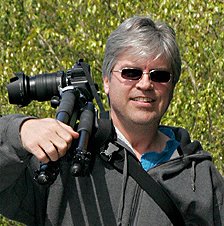 Both Duncan newspapers this morning heralded the disturbing news about the newly adopted City of Totems Copyright Policy.
Both Duncan newspapers this morning heralded the disturbing news about the newly adopted City of Totems Copyright Policy.According to the stories that ran in the Citizen and the News Leader, the policy states the City "holds the copyright policy on the totem collection," and that "the use of the totem images in any form requires approval from the City of Duncan," and "Furthermore, the City of Duncan reserves the right to levy a copyright charge on a project-by-project basis."
I have no doubt the city holds copyright on the structures, but the policy disturbs me because it appears to be in contravention of the Canada Copyright Act which clearly states it is not against copyright law to take a photo of any architectural work, or a permanent piece of public art.
Photography of Buildings and Public Art
(b) for any person to reproduce, in a painting, drawing, engraving, photograph or cinematographic work
(i) an architectural work, provided the copy is not in the nature of an architectural drawing or plan, or
(ii) a sculpture or work of artistic craftsmanship or a cast or model of a sculpture or work of artistic craftsmanship, that is permanently situated in a public place or building;
I applaud the city for wanting to control its copyright of the totems, but this policy clearly oversteps its boundaries, infringes on our basic freedoms and borders on extortion. As much as I believe in protection of copyright, I am very much a defender of personal rights and freedoms. Since it is not against the law to photograph public art, permission is not required to take photographs and no one can be prevented from doing so.
Below is a letter I sent to the Mayor and Council as well as to the editors of both Duncan newspapers.
Totem copyright policy oversteps boundaries, borders on extortion
Dear Mayor and Council ,
Although I applaud anyone for protecting copyright of their intellectual property, the newly adopted City of Duncan Totem Copyright Policy oversteps its boundaries. The policy is saying we now have to ask for permission to do something we have every right to do – a right guaranteed under federal law in the Copyright Act.
It is clearly stated in the Copyright Act that it is not against copyright law to take a photo of any architectural work or permanent piece of public art. Section 32.2 of the Copyright Act states:
(1)"It is not an infringement of copyright . . .
(i)an architectural work, provided the copy is not in the nature of an architectural drawing or plan, or
(ii)a sculpture or work of artistic craftsmanship or a cast or model of a sculpture or work of artistic craftsmanship, that is permanently situated in a public place or building;
Under The Charter of Rights and Freedoms, we are all guaranteed the right to express ourselves through photography (or any other art form). We furthermore have the freedom to publish the artwork we take. With rare exceptions under the Security of Information Act which covers arsenals, military installation and other items of national security, anyone can take photos of anything in public, without permission, and it is not against the law.
To take the matter even further, the policy – which essentially prevents anyone from doing something that is fully within their rights – borders on extortion. Under the Criminal Code of Canada, section 346 states
(1), "Every one commits extortion who, without reasonable justification or excuse and with intent to obtain anything, by threats, accusations, menaces or violence induces or attempts to induce any person, whether or not he is the person threatened, accused or menaced or to whom violence is shown, to do anything or cause anything to be done."
If the city truly wants to exercise its copyright of the totems, it should be creating (or commissioning artists to create) calendars, postcards or ornaments of the totems and marketing them rather than putting up barriers to photographers who may or may not be creating any of the afore-mentioned items.
City Hall receiving permission requests to photograph the totems does not mean a policy was required. Based on copyright laws, the answer that should be given to anyone requesting permission is "you are fully within your rights to photograph any public art."
Regards
Len Langevin
lml



